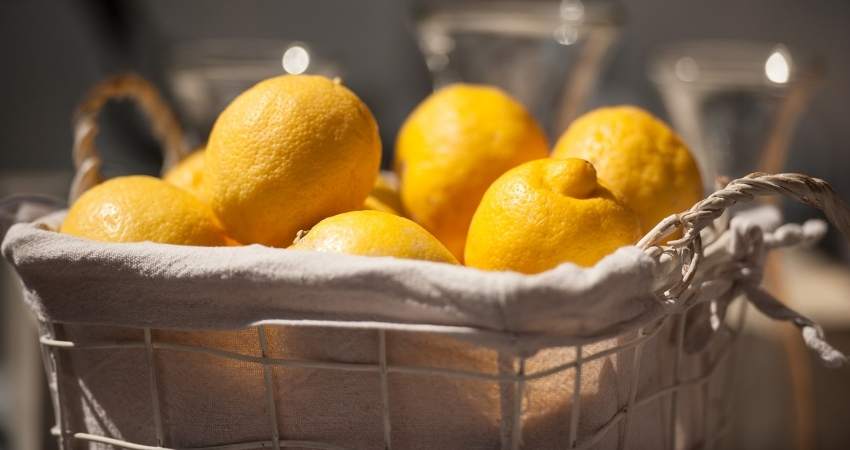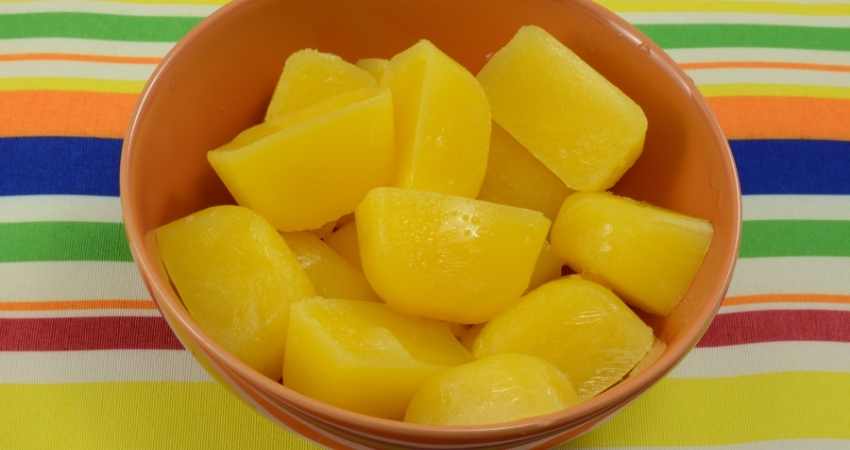A Guide to Lemon Storage – Refrigerator Or Counter?
Many people wonder if lemons last longer in the refrigerator or counter.
Lemons will last longer in the refrigerator as opposed to on the counter. A lemon will stay fresh for about one to two weeks on the counter. In the refrigerator, a lemon can stay fresh and edible for about two weeks. In resealable plastic lemon can last for six weeks in the refrigerator.
There are pros and cons to all types of lemon storage. There are also a few things you should know which will make them last longer in the refrigerator, let’s get into it.
Storing Your Lemons In The Refrigerator Vs The Counter

As a Certified Health Coach many clients ask me about food storage including lemons. Also, I purchase and consume them every week. Therefore, I have researched this topic in the past and present. Let’s examine the storage methods closely.
So now you know storing your lemons in the refrigerator will keep them fresher for longer1. It will actually extend the life of a lemon by a few weeks, which is incredible.
That said, let’s find out which is best for you because there is more to it than which of the two storage options keeps your lemons fresh for longer.
Storing Your Lemons In The Refrigerator: Pros And Cons
Pros
The biggest advantage to storing your lemons in the refrigerator is it stays fresh for weeks instead of days2. This allows you to make fewer trips to the store by buying more lemons at once and keeping them fresh.
Cons
If your lemons will be consumed quickly, you’re better off keeping them on the counter3. The downside to this is your lemons will become firm. In addition, for some reason, the lemon juice will taste a little bit more sour or feel sharper on your tongue.

Storing Your Lemons On The Counter: Pros And Cons
Pros
When lemons are kept at room temperature, they are better for adding to cooked food. This is so because the lemon juice will not start making your food cold as you pour or squeeze the juice onto the food. In addition, a lemon will produce more juice when they are warm.
When lemons are kept at room temperature, they have more of a natural texture and flavor. So whether you are squeezing the juice out or adding small lemon slices to the food, this is one of the best pluses for storing lemons on the counter4.
If you are creative, you can make a nice display by adding lemons in a fruit bowl to help jazz up your kitchen or dining area.
Cons
The most obvious con when storing your lemons on the counter is they do not last as long5. This isn’t really a problem for you if you go through the lemons pretty quickly after buying them.
How Do You Keep Lemons Fresh For Longer In The Refrigerator?
Sometimes you may not use an entire lemon and will want to preserve the part you did not use. You would definitely need to put the rest of the lemon away in the refrigerator.
Do not store it on the counter as it would spoil within a few hours. When you put it in the refrigerator, you’ll need to take one extra step.
After cutting the lemon in half, you’ll want to wrap the lemon in plastic wrap or at least place it in a plastic storage bag6. Don’t put it with the other fresh produce in your refrigerator. Instead, put the wrapped half on a small plate and make sure you eat it within the next day or two.
If you take the lemon out of the refrigerator and the inside of the lemon seems hard, cut that piece away and the remainder of the lemon should be good to eat.
Should You Use A Container When Storing Lemons?
This is something you see people doing quite often. Is it a good idea, though? Should you store your lemons in a container whether it’s plastic or metal?
When you store lemons in a container and close the lid, the condensation will spoil your lemon faster. This is especially true if you keep it out of the refrigerator.
One of the reasons why refrigerators have a dedicated fresh produce section is because they are designed to be ventilated and have decent airflow through them. This way fresh produce does not condensate in the refrigerator.
You could use a container if you are storing lemons away for a short time. Like while you wait for your guests or if you are going to use them on the same day.
Should You Store Lemons In The Freezer
Sometimes you’ll have many lemons and know you won’t use them before they start spoiling, even in the refrigerator. There is always the option to freeze the lemon. While this is a great idea and it could preserve the lemon, it does have one drawback.
When you store a lemon in the freezer, it will be preserved for longer but the lemon will become sort of mushy. This is because ice forms crystals and those crystals, as small and microscopic as they are, tend to shred the lemon on the inside. It is barely noticeable, but you’ll notice how mushy the lemon became.
That isn’t all bad news for anyone who likes to use lemons for the juice, because they are squeezing it anyway. In addition, there are some great things you can do by freezing lemons.

Make Lemon Juice Ice Cubes
If you have many lemons and like using lemon juice in your food while cooking, you may want to try this. A great thing to do is to extract the juice of the lemon and place it in ice making trays.
Put them in your freezer and whenever you need some fresh lemon juice, you can pop them out of the ice cube tray. In addition, you can add the lemon cubes to water or other drinks.
Freeze Lemon Wedges And Use Them As Ice Cubes
Drinking lemon water is great for you if you do it in moderation. I try having a glass of lemon water every morning. Although that isn’t the only time you may put lemons in your drinks. Most of the time when you go to restaurants, they add lemon slices or wedges in the water or ice-tea.
The restaurants aren’t the only place you have to enjoy this. You can do the same at home, and it’s one way to impress your friends. Just cut some lemons up into wedges or slices and place them in the freezer in little plastic bags. Then the next time you pour yourself or a guest a glass of water, ice-tea or similar drink, simply place some frozen lemon wedges in there instead of using traditional ice.
If you have any questions to ask me about this article don’t hesitate to comment below or email us. You can find an email on our contact page.
Read Next – More Food Storage
6 Cheeses That Can Be Left Unrefrigerated
Can You Store Strawberries and Grapes Together?
This is How to Freeze Broccoli
How To Store Mashed Avocado: The Complete Guide
- Fruits & Veggies: Lemon [↩]
- eatFrash.org: Citrus [↩]
- Produce Oasis: Lemon [↩]
- USDA: Lemons [↩]
- University of Florida: Citrus: Safe Handling Practices for Consumers [↩]
- Produce Oasis: Juicing A Lemon [↩]
